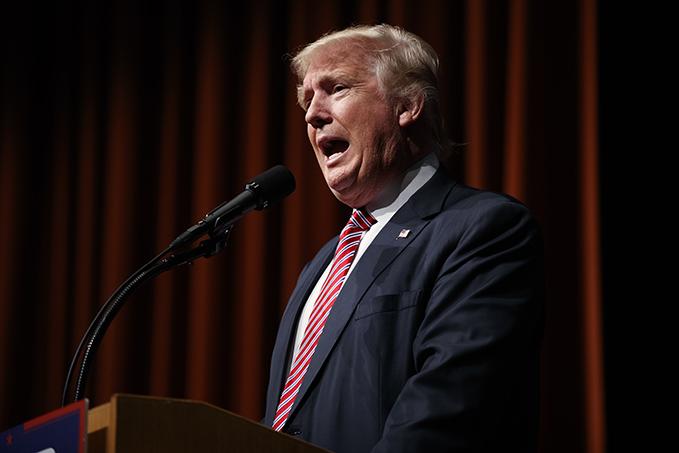By Marcus Brown
marcus-brown@uiowa.edu
It would appear as though the novelty of Donald Trump’s candidacy has finally shown signs of disintegration. Trump’s ongoing public feud with the family of U.S. Army Capt. Humayun Khan, a member of the military who sacrificed his life to save the lives of his fellow troops, seems to have escalated opposition to his candidacy to the point of bipartisan disapproval.
Humayun Khan’s father, Khizr Khan, spoke at the Democratic National Convention last week, and his criticisms of Trump coupled with Trump’s insensitive and disrespectful rebuttals have served to galvanize those in opposition of the GOP candidate.
The ridiculousness of Trump’s candidacy has certainly not been ignored, but it is becoming clear that insulting the family of a distinguished war hero who gave his life for this country was a step too far. Ordinarily, the routine when dealing with Trump’s xenophobic and inflammatory rhetoric has been momentary outrage and condemnation until the disapproval fades into apathy. It makes sense, given that Trump cannot really be considered much more than a walking caricature of a pseudo demagogue fueled by the discontentment and feelings of uncertainty held by the American people. By sticking to the foundations of his tropes, those being Trump has made it much further than I expected, but I am pleased to see that it is possible for him to have overplayed his hand.
A line was crossed. One would think that public opinion of Trump should have reached a breaking point much earlier with the talk of constructing walls and deporting the Muslim population of the United States, but up until now, Trump could rely on the steadfast support of his proponents regardless of whatever outlandish remarks he chose to make. Richard Hanna, a recently retired Republican New York congressman, said on Tuesday he would vote for Democratic nominee Hillary Clinton in the upcoming election, signaling possible mutiny in Trump’s own party. Across the board, the response to Trump’s comments about the Khan family have been meet with reproach, but by refusing to retract endorsements, members of the GOP have still given tacit approval.
Perhaps a lesson can be learned from the imminent Trump debacle. A two-party system encourages a prioritization of party allegiance over moral responsibility, but this mentality is detrimental for the country as a whole. It does not matter who has the highest position in the land if the land has been burnt to the ground, and while that may be an exaggeration, in comparison to a Trump presidency, it isn’t that large of an exaggeration. If members of the GOP no longer agree with Trump’s ideology, it would not be a betrayal to the American people to withdraw their support for him. What could be seen as a betrayal of one’s party can be seen as a demonstration of allegiance to the greater good of the country. The two-party system should not be the basis for supporting an incompetent candidate, because ultimately, the point of the presidential campaign should be to elect the best possible candidate even if that isn’t necessarily your candidate.



